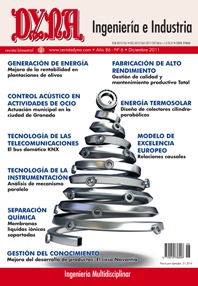CAUSAL RELATIONS IN THE EUROPEAN EXCELLENCE MODEL
Keywords:
Modelo EFQM, Modelos de Ecuaciones Estructurales, Calidad Total, Criterios Agentes, Criterios Resultados,Abstract
The EFQM Model is widely used by organizations as a reference to guide its management, in pursuit of excellent results for its stakeholders. However, this model has not been formulated based on empirical studies, and does not explain the causal relationships between its criteria, so it is necessary to confirm its validity and to explore these relationships. Structural Equation Models are a statistical technique that is particularly suited to the study of the interrelationships between the various criteria that structure the EFQM Model, and the causal relationships between them, so that model users can have a greater control of the results for each stakeholder.The results of this study confirm the relationships among the criteria of the Model, and provide information on relevant influences that impact the results for each of the stakeholders.Downloads
Published
2011-12-26
Issue
Section
ARTICULOS

